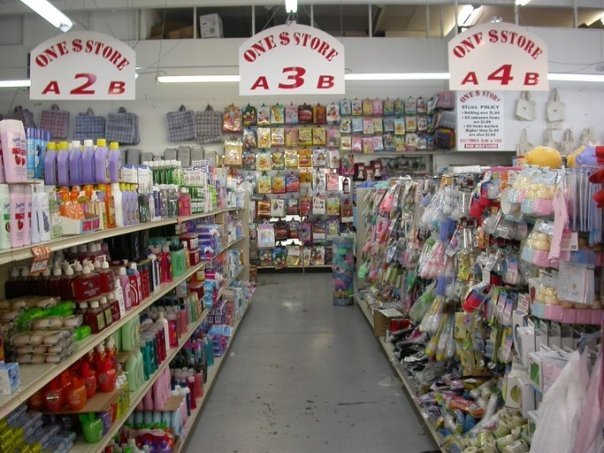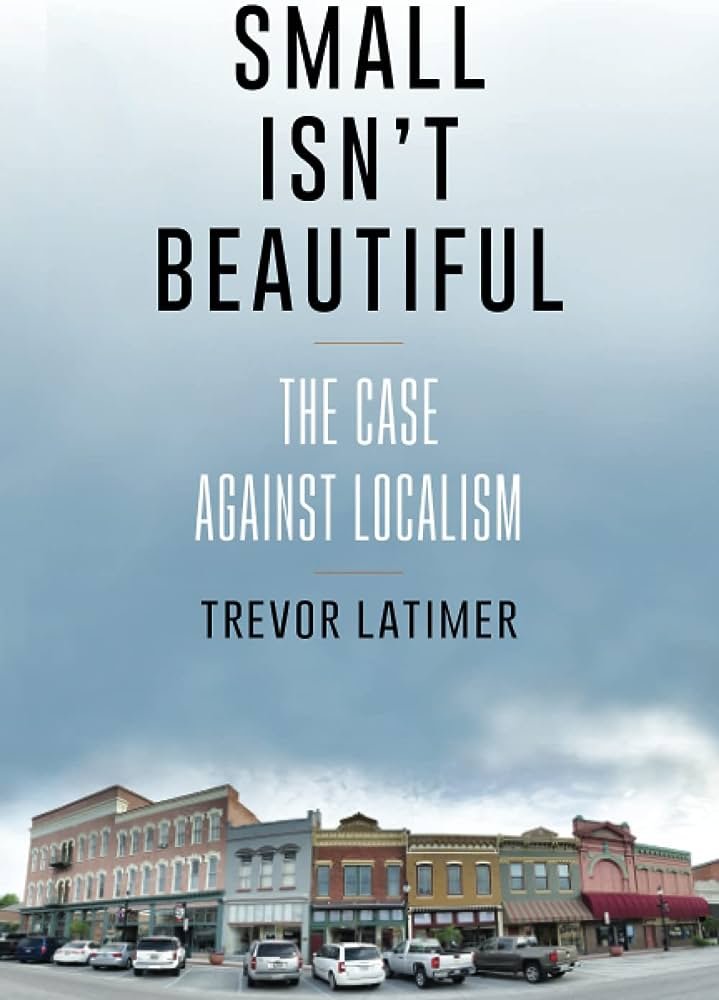
Defying Stereotypes, Populism and Neoliberal Discourse
Our paper describes and records some of the innovative ways municipalities in Québec reacted to the COVID pandemic. It is probable that many other municipalities and local authorities reacted in similar ways in other jurisdictions. The paper also provides some elements to help understand and describe in what way municipalities are being innovative, and how this compares to, and differs from, private-sector innovation.

Partisanship and Professionalization
Since the COVID-19 pandemic in 2020, school board operations - and the elections to those positions - have received increased attention nationally and locally. As we realized the central role school boards were playing in the political landscape, we wanted to better understand how school boards were responding to both the pandemic and being increasingly in the political spotlight. We conducted a large-scale survey of school board members in multiple states during the summer of 2021. In open-ended responses on the survey, school board members highlighted their frustration with the politicization of the pandemic.

Are dollar stores magnets for violent crime?
In recent years, the United States has experienced a significant rise in economic inequality, a trend that has coincided with the rapid expansion of dollar stores, especially in the aftermath of the Great Recession. These establishments are often lauded as beacons of affordability, providing essential goods to financially disadvantaged communities. However, recent media reports and community demonstrations have cast a shadow on their presence. They highlight several concerning aspects, one of which is an alleged escalation in violent crimes in their vicinity.

Consumption and Economic Security
This study reveals a built-in contradiction of capitalist housing markets by conceptualizing homeownership as a special commodity, the consumption of which involves two separate stages of conflicting purposes: limited financial resources are fought over in the consumption of mortgage products (to obtain homeownership) and the enhancement of household economic security (to sustain homeownership). It is the latter stage that determines the long-term prospect of sustainable homeownership.

Creating Local “Citizen’s Governance Spaces” in Austerity Contexts
In many cities, and particularly in a context of neoliberal austerity and governmental withdrawal from public action, citizens act upon their urban environment. If these initiatives could be presented as spaces of resistance to neoliberalism, or as political acts of reclaiming the city, these emergent practices are neither a manifestation of state retrenchment nor its outright rejection. Individuals and loosely organized collectives involved in such initiatives develop and are embedded in complex and multidimensional relationships with local institutions and third sector organizations. Montreal is a particularly interesting case to observe these practices. Bringing citizens’ initiatives and so-called social innovations to the core of public action have been among the neoliberal policy orientations pursued by some of Montreal’s boroughs and third sector organizations, increasingly relying on volunteers and private citizens to intervene in the public sphere, especially in the areas of urban gardening and food recuperation.

Explaining Value Capture Implementation in New York, London, and Copenhagen
Value capture (VC) is widely cited as a method for local authorities to continue to provide urban public goods, such as public transport or measures to make neighborhoods more climate-resilient, in the face of fiscal stress. It is based on the idea that public investments create financial value in their surroundings that accrues to various beneficiaries. In theory, this value can be captured to fund those investments. However, the application of novel value capture strategies in practice remains limited. In this article, we aim to provide a better explanation of the implementation process of value capture as a strategy for funding public transportation infrastructure.

Toward a state-led, market-enabled commons
What is community energy? What does green energy have anything to do with local places, democracy and common goods? How do lay people contribute to the production and the distribution of solar energy? These may be some usual questions coming to people’s minds whenever group solar or collective power campaigns pop up on the press or in the forums. Community energy is a type of community-owned, -financed, and -operated renewable energy supply in the form of a project or program initiated by a group of people united by a place, a neighborhood, and/or a set of common interests.

Experiences of policing in gentrifying neighborhoods
Cities in the United States are well known for their segregation and sharply different experiences of policing across neighborhood boundaries. Extensive social science research has shown that “race-class subjugated neighborhoods” with concentrated populations of low-income Black and Latino residents experience harsh and punitive policing, whereas high-income and mostly-white neighborhoods experience limited police contact. In the former neighborhoods, residents also express frustration that policing does not address concerns about crime or violence, leading to these neighborhoods being simultaneously “over-policed and under-protected.”

Community Benefits Through an Anchor
This project explores how anchor developers are contested throughout their planning and what the outcomes of these contestations teach us about accountability in urban governance. I look at this phenomenon through the case of the planning of the Obama Presidential Center (OPC), an anchor institution built by the Obama Foundation that features a museum of President Barack Obama’s presidency and a campus for Foundation programs. The Obama Foundation partnered with another nearby anchor, the University of Chicago, to plan the future OPC, which will be constructed in Chicago’s Woodlawn neighborhood. The University has a fraught relationship with Woodlawn residents due to its racist treatment towards Black residents spanning back through the 20th century.

“The councilors are the ones to blame”
When we engage with others, it is not on neutral ground. Instead, we interact on territories marked by power and social distinctions. Take neighborhoods, for example — these areas have social rules and purposes. Some of these rules may dictate that we are not allowed to step on the grass, that we should avoid going there at night, or that they are reserved for those who live there. As this illustrates, territories are not neutral; they shape who we are, how we should behave, for what purpose, and who has a say and ownership over space. Who determines the power dynamics within territories? Literature shows that territories are simultaneously created from above, where the state plays a determinant role and from below by those who inhabit them. However, some questions remain unanswered, particularly the state's role in creating territories vis-á-vis citizens' initiatives.

What Court Mergers Teach Us About Cutting Government Costs
Across the world, consolidation is a common way of reforming local government. Advocates argue that combining two or more local governments enables the new, larger government to reduce spending by providing services more efficiently. One way that mergers achieve this is by spreading large capital costs over a larger population: instead of two small towns operating their own trash removal service or two small school districts running two administrative systems, the larger local government can operate one. It is also argued that mergers can reduce spending through the elimination of redundant departments, services, and staff.

Resettled Refugees and African Americans in the Same Neighborhoods
Our study delves into the relationship between resettled refugees and native Black Americans who share neighborhoods but may experience distinct realities. We aim to understand if refugees and native Blacks perceive their surroundings similarly; if they interact; and whether they view each other as strangers, threats, or potential allies for collective problem-solving. Our investigation focuses on intergroup dynamics and local power relations between "old locals" (incumbent residents) and "new locals" (resettled refugees) to assess opportunities for community building between these historically minoritized multiethnic groups.

With a little help from my friends?
Cities around the world face declining revenues and increasing demands for public services by residents and commuters. Large metropolises have been navigating times of deficit for a long time. The pandemic only intensified these dynamics, particularly in big cities. Cross-boundary dynamics, such as contracting out or joint production of services, are well-known practices intended to (a) lower the costs of services, (b) increase service quality, and/or (c) enable access to certain services.

‘Anywhere but Here’
Homelessness is a pressing issue in many communities across the United States, with California often at the epicenter of the crisis. Despite numerous policy initiatives aimed at its alleviation, for six straight years, the problem has increased nationwide. Areas where we had seen improvement, such as veteran and family homelessness, are again on the rise. Meanwhile, racial disparities in homelessness are at an all-time high, with communities of color experiencing the phenomenon at three to four times the percentage of their overall representation in the population.

From the Local to the Hyperlocal
Mark Chou (Austrialian Catholic University) reviews “Small Isn’t Beautiful: The Case Against Localism” and “Hyperlocal: Place Governance in a Fragmented World” in this book review essay.

Political Underrepresentation Among Public Benefits Recipients
In November 2020, all eyes were on Pennsylvania in the lead-up to the hotly-contested presidential election. Four years prior, Donald Trump had carried the state by under 45,000 votes, out of more than six million ballots cast. Given its pivotal position as a presidential swing state, campaigns and grassroots groups blanketed the state to register and then turn out people to vote. Turnout in that election broke modern records.
But one key group of eligible voters was underrepresented among the record-high electorate: people receiving means-tested public benefits. Studying voter registration and voting in a large county in Pennsylvania, we found that people enrolled in means-tested public benefits programs register to vote and vote much less often than non-recipients.

Towards a Measure of Local Legislative Professionalism
Local legislatures are not, on average, poorly resourced institutions that are staffed by citizen legislatures, nor are they professional bodies more akin to Congress. Instead, much like state legislatures, they tend to fall somewhere in the middle, with most municipalities taking on some characteristics of each type. In the end, we hope this measure will help scholars and practitioners of urban politics better understand how institutional structures, like professionalism affect outcomes.

Digital Symposia are back!
Symposia on the Urban Affairs Review Forum facilitate critical engagement of several scholars around a common theme or question of interest. Typically, each symposium will include between six and twelve short articles of approximately 2,000–4,000 words. Unlike research articles published in the journal, these pieces will not go through the typical peer-review process. Rather, they will be commissioned by one of the UAR’s co-editors who will be responsible for reviewing pieces before publication. These articles are intended to be of interest to fellow scholars but also to reach beyond an academic audience to engage policymakers, practitioners, media outlets, and the general public.

“Defund” or “Refund” the Police?
In June of 2020, like many of you, we watched as George Floyd died at the hands of the Minneapolis police officer Derek Chauvin. We also watched as countless residents of cities took to the streets to protest this injustice. At the same time, the coronavirus pandemic meant that most city council meetings were being held via Zoom. In meeting after meeting, we observed calls to defund the police or move funds to other departments. While popular media reported that most departments did not defund their police budgets, the narrative and the rhetoric persisted. We wondered: to what extent might local governments have reduced their police budgets in the aftermath of the protests?

Do Land Banks Mean Progress Toward Socially Equitable Urban Development?
Within the US, land banks have become a popular model to transform vacant and abandoned sites into productive properties in cities facing population decline. Land banks wield significant powers, assembling land and disposing of property. Local governments have viewed land banks as an improvement to the municipal management of foreclosed property in cities losing population and a tool to provide community programs that support social equity.